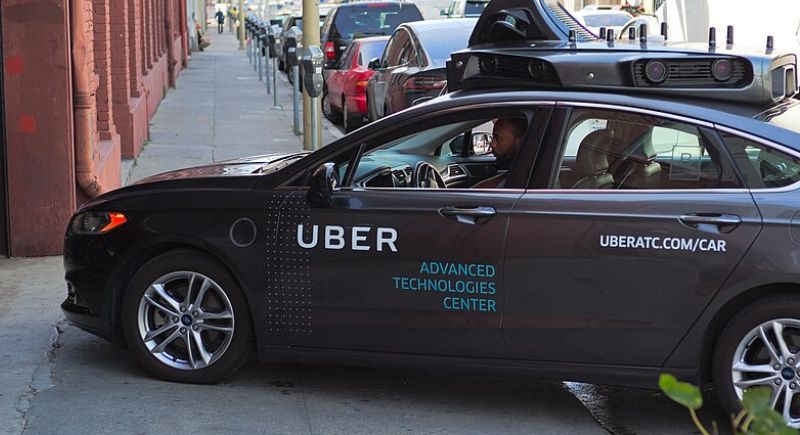17 Completely Made-Up Jobs That Somehow Pay Real Money Now
Once upon a time, telling someone you got paid to sleep or plan virtual weddings would’ve earned you a confused stare. A few decades later, those jobs exist—and they actually pay well. Social media and digital platforms have turned niche skills into full-time jobs, so the weirdest talents can lead to real paychecks.
App Developer

Credit: SeventyFour
Hard to believe, but there was a time when “app developer” wasn’t a real job. Back in the late 1980s, coding was a world of ones and zeros, reserved for scientists and big corporations. That all changed in 2008 when Apple launched the App Store, which turned app development into a global gold rush.
Social Media Manager

Credit: Getty Images
Before brands took social media seriously, managing an account was as simple as tossing the login to an intern and hoping for the best. In the early 2000s, platforms like Facebook and Myspace were digital hangouts, not marketing goldmines. But when Facebook and Twitter exploded, businesses had an epiphany.
Uber Drivers

Credit: Wikimedia Commons
In 2009, catching a ride usually meant flagging down a cab or hoping a dispatcher actually sent a car your way. Then UberCab rolled into San Francisco, and suddenly, all it took was a few taps on a smartphone. By 2011, the company had rebranded as Uber, expanded worldwide, and turned everyday drivers into on-demand chauffeurs.
Driverless Car Engineer

Credit: Wikimedia Commons
The idea of a car driving itself used to be pure fantasy. In 2025, it’s just another Tuesday in San Francisco. The road to autonomy started in the 1980s with projects like Carnegie Mellon’s Navlab and ALV, which laid the groundwork for self-driving tech and allowed companies like Waymo to run robotaxis in major cities.
Cloud Computing Specialists

Credit: SeventyFour
Not long ago, businesses hoarded data like digital dragons, guarding massive server rooms while IT teams fought never-ending battles against crashes and updates. Then, cloud computing swept in and turned storage into something as effortless as streaming a movie. With that shift, cloud computing specialists became the new tech wizards who would guide companies into the future.
YouTube Content Creators

Credit: Canva
Three ex-PayPal employees unknowingly rewrote internet history in 2005 with a simple idea—what if anyone could share videos online? That idea became YouTube, a platform that turned everyday people into stars. By 2007, YouTube’s Partner Program made monetization possible, which turned casual uploads into full-fledged careers.
Drone Operators

Credit: Getty Images
Long before drones were filming blockbuster action scenes or delivering packages, they were flying into battle. The first unmanned aerial attempts date back to the 19th century, but in modern times, drones are everywhere. With an average salary of $58,350 in the U.S.—and even more in specialized fields—flying drones has become a lucrative career.
Podcast Producers

Credit: Getty Images
Radios used to rule the airwaves, and if you missed a show, tough luck. Then podcasting crashed the scene, and things like the “iPod” and “broadcasting” brought a revolution that put storytelling in the hands of anyone with a mic and a Wi-Fi signal.
Esports Coaches

Credit: Getty Images
Esports didn’t always have playbooks and analysts. Early on, competitive gaming was all instinct and adrenaline. As prize pools skyrocketed and competition tightened, teams realized raw skill wasn’t enough. That’s when the esports coach stepped in.
VR Developer

Credit: Getty Images
Strap on a headset, and suddenly, you’re sword-fighting in a medieval castle or exploring the ocean’s depths. In the 1960s, inventors like Morton Heilig and Ivan Sutherland already experimented with immersive tech. By the 2010s, computing power and graphics caught up to ambition and turned VR into a thriving industry.
Virtual Assistant

Credit: Getty Images
“Work from home” was a buzzword, but Christine Durst was already redefining productivity. In the mid-1990s, she saw the internet’s potential to turn traditional office jobs into remote opportunities. Administrative support could happen from anywhere with a Wi-Fi connection.
Chief Sustainability Officer

Credit: Getty Images
Sustainability in business used to be more of a feel-good initiative than a serious executive priority. That changed in 2004, when DuPont shook things up by appointing Linda Fisher as the first-ever Chief Sustainability Officer (CSO). Soon, giants like Coca-Cola, AT&T, and Dow had their own CSOs leading the charge.
Cryptocurrency Adviser

Credit: iStockphoto
Bitcoin kicked open the door to a wild new financial frontier. With all the hype (and confusion), figuring out the market was like gambling in a language no one spoke. That’s where cryptocurrency advisers came in. These pros help investors dodge disasters, decode trends, and navigate ever-changing regulations.
AI Ethics Officers

Credit: Getty Images
AI is getting smarter, faster, and more powerful—but who’s ensuring it doesn’t go rogue? Answer: It’s the AI Ethics Officers! They’re the moral compass of machine learning who make sure algorithms don’t turn into the next dystopian villain. Companies like Salesforce took the role seriously by appointing Paula Goldman in 2019 to ensure AI stays on the right side of ethics.
Data Scientist

Credit: Getty Images
Companies in the early 2000s were sitting on mountains of data. Spreadsheets weren’t cutting it, and traditional statisticians weren’t prepared for the tidal wave of unstructured information pouring in. That’s when DJ Patil and Jeff Hammerbacher, working at LinkedIn and Facebook in 2008, gave it a name—data science—and changed the game forever.
Professional Sleeper

Credit: Getty Images
Getting paid to nap sounds like a scam until sleep labs, mattress companies, and wellness startups enter the picture. Professional sleep testers evaluate comfort, track sleep quality, and report on how it actually feels to rest on products. The job requires detailed feedback, flexible schedules, and a surprising amount of discipline.
Professional Line Stander

Credit: Getty Images
Busy schedules and sold-out events created demand for people willing to wait so others do not have to. Professional line standers hold spots for product launches, concerts, and court filings. It pays by the hour, rewards patience, and turns standing still into a strangely profitable hustle.